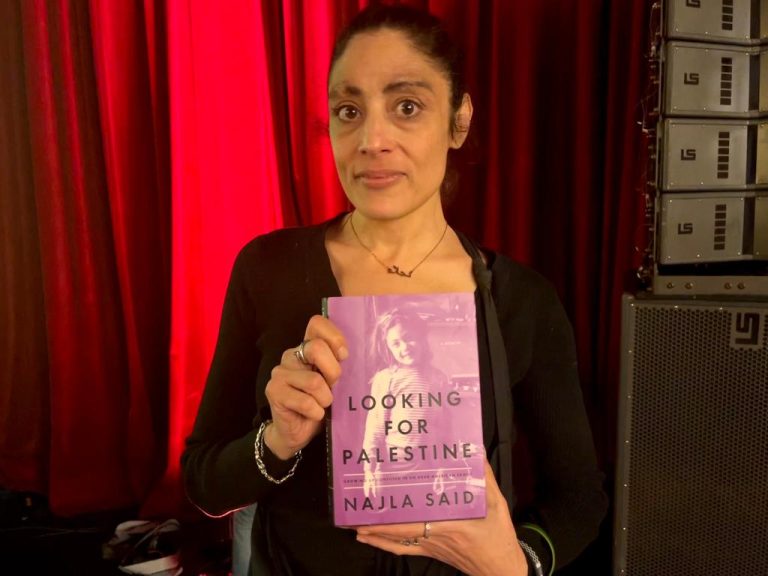São Paulo – A touching speech by writer, playwright, and actress Najla Saïd closed the seminar The Intellectual Legacy of Edward Saïd this Wednesday (11) at SESC 14 Bis, in São Paulo. Saïd’s daughter told about her trip to Gaza with her family at 18, life in New York, conversations and letters with her father, and responded to current events.
Najla Saïd wrote a play called Palestine and has performed it in many countries, including the United States. She wrote the book Looking for Palestine: Growing Up Confused in an Arab-American Family based on the autobiographical play.
The author said she found in literature a passion she shared with her father, and they talked about the books she was reading at school, such as Jane Eyre by Charlotte Brontë and The Stranger by Albert Camus. “The first lesson I got from my father was how to read a book,” said Najla Saïd. He was outraged by the woman trapped in the attic in Brontë’s novel and by the nameless “Arab” described in Camus’s work, and she learned about critical reading and colonialism.
“I’m very grateful to have learned from him since I was little,” said Najla Saïd, who also said she never read her father’s books, except for the preface to Orientalism, his best-known work. “He was the father of postcolonialism studies, and I was four when he wrote Orientalism. He explained to me how Arabs were portrayed,” she said.
Saïd told his daughter about the importance of Palestinian self-determination, and on a more personal note, she reported her father collected pens, smoked a pipe, and spoke sometimes with an English accent, sometimes with an American accent. “He was a humanist who spoke truth in the face of power,” she said.
As a teenager, Najla Saïd said she felt uncomfortable with her Arab background living in New York. “I was 13 or 14 when the first Intifada started [in 1987]. Then, I saw myself as Palestinian and Arab. Today, I am proud of my roots,” she said.
On September 11, 2001, Najla was already an actress and said, as an Arab-American, it was crucial to become who she was. She established a theater company with friends from different backgrounds and staged a play on the perception of Arabs in the United States. “My father was very proud,” she said.
In 2002, she wrote Palestine and debuted Off-Broadway on New York’s alternative theater circuit. “I was petrified of assuming my identity to the world. I learned to be a humanist, to use the word Apartheid to describe Israel, and I told my story as a minority and let it speak for itself,” she said.
The main point of the play and the author’s book was a text she wrote in her diary on June 16, 1992, about her trip to Gaza with her family when she was 18. “Dad hadn’t been to his country for 40 years,” she said. According to her, the stench of open sewage could be felt inside the car with the windows rolled up. They had lunch at the home of an important family; the men went to one room and the women to another, something that caught her attention. Her father talked about the demographic density of the Gaza Strip, among other significant facts about the city, and she said she didn’t need to hear it because she was living in it.
Regarding the recent events in Gaza, Najla Saïd said she is terrified and very scared. She thought about what her father would say and said he would count on her knowledge of the facts, and that was what she always had. “But this [Zionist] propaganda got out of control, and I was terrified,” she said.
Najla Saïd ended her speech with an emotional letter her father wrote to her when she was a teenager, which she had framed and had been in her living room for twenty years. “I was a rebellious teenager, and sometimes we communicated through letters because it was the easiest way to express ourselves,” she said.
“He practiced what he preached, lived how he said he lived, and acted accordingly,” she said.
Translated by Elúsio Brasileiro




